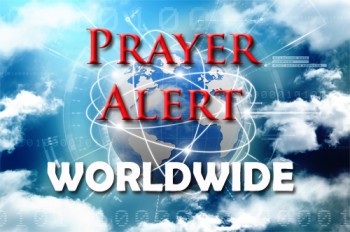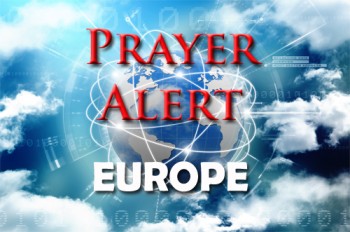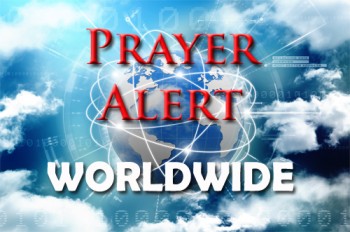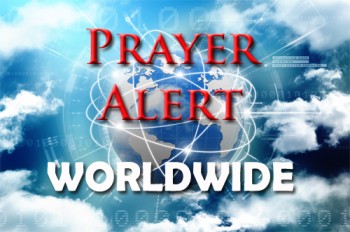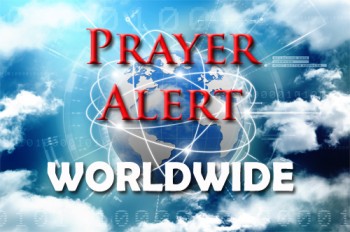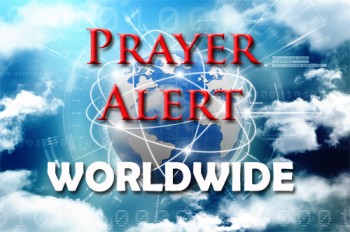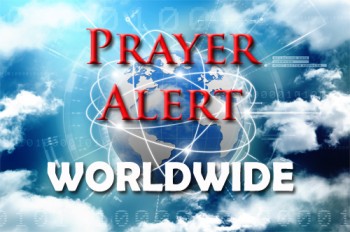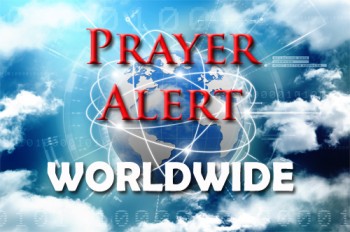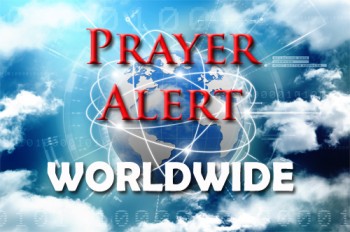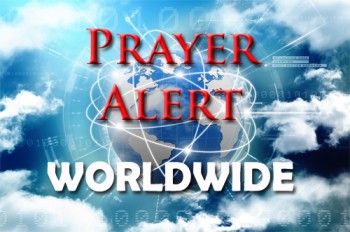
Displaying items by tag: Venezuela
Latin America: a new Cold War?
Many geopolitical media watchers and prayer warriors believe the growing wave of anti-government protests ravaging the streets of Ecuador, Chile, Bolivia and Colombia hasn’t been seen since the old Cold War, which is why the increase in protests and tensions might be called Cold War 2.0 in Latin America. This time, at least as yet, there aren’t armed proxy groups in play but Moscow has weaponised social unrest to sabotage Western power in the region. Earlier this decade we saw similar issues on Russia’s strategic periphery, notably in Ukraine in the wake of the 2014 Maidan protests and the 2005 Orange Revolution. These protesters aren’t necessarily armed Marxists, but anti-government and armed with anti-US rhetoric. Much the same approach is evident in Moscow’s support for Nicholas Maduro’s failing regime in Venezuela, with the help of Cuban operatives. Russia has become increasingly adept at using social media to disperse disinformation on the Internet.
Brussels: concern for displaced Venezuelans
The EU, along with UNHCR and the International Organisation for Migration (IOM), is organising a high-level international conference on 28 and 29 October in Brussels. They are calling for urgent and concerted action for Venezuelan refugees and migrants. On 23 October Brussels highlighted the dramatic flight of millions of Venezuelans - one of the direst displacement crises in the world, and the largest in the recent history of the region. Nearly 80% of the 4.5 million who left their country have remained in Latin America or the Caribbean. Although countries in the region show solidarity towards them, their capacity and resources are reaching breaking point. The conference aims to raise awareness of the crisis, reaffirm global commitments, and assess best practices.
South America: nations with high crime rates
Brazil, Colombia, El Salvador, Honduras, Mexico, Puerto Rico, and Venezuela have colossal crime rates which undermine growth, threaten human welfare, and impede social development, according to the UN and World Bank. The region registers 40% of the world’s murders despite having only 9% of the global population. One in four Latin Americans was assaulted and robbed in 2018. Wealthy Brazilians have to provide their own security. Pray for the church and the police to bring security and peace to Brazil’s vulnerable population. Massive street marches in Argentina, Mexico, and Brazil protesting against violence have made it difficult for politicians to avoid dealing with the issue and, in many countries, tackling crime is a central theme in political party platforms across the region. Pray for God to raise up strong, wise men and women with God’s anointing to lead the countries back to His purposes.
Venezuela: violence, Hezbollah, drug production
29 April was a day of chaos and violence after opposition leader Juan Guaidó called for a military uprising in Caracas and urged supporters to take to the streets to force his rival Nicolás Maduro from power. The US secretary of state, Mike Pompeo, said that Maduro had told America that he would leave Venezuela and live as an exile in Cuba and had an airplane on the tarmac, ready to leave: then Russia convinced him to stay. Recently Russian military personnel entered Venezuela to keep its sophisticated S-300 surface-to-air missiles operational despite its crumbling infrastructure and frequent power failures. Also Tareck El Aissami, Maduro’s closest confidant, is being investigated by the intelligence agency about helping Hezbollah militants into the country, partnering with a drug lord, and shielding 140 tons of chemicals to be used for cocaine production - making him a rich man as Venezuela spiralled into poverty. See
Venezuela: ‘Operation Blackout’?
Nationwide power cuts in Venezuela started on 7 March. The government of Nicolás Maduro blames US-backed saboteurs and snipers for the lack of water and electricity. Experts blame poor maintenance and a bush fire in the power grid. Russia backs Maduro’s version of events, claiming Washington is employing ‘techniques’ to remove him, including a man-made shutdown of energy facilities they called ‘Operation Blackout’. These allegations contradict the widespread consensus that Hugo Chávez’s authoritarian heir is responsible for an unprecedented electricity crisis that has deprived millions of citizens of light and water. Men are chopping down trees to take home to light fires for heat and light. When water stops flowing, people go to rivers and streams and collect muddy water to boil and reuse. There is dehydration, diarrhoea and a danger of more serious diseases. Opposition leader Juan Guaidó is calling people to take to the streets on 1 May for an enormous march to keep the pressure on the president to go. See
Venezuela: ‘we call it survival’
Food is rotting in refrigerators, people needing dialysis die as hospital equipment shuts down. Diabetics pick leaves, high in sugar, from neem trees amid fears for insulin supplies which must be kept refrigerated. Venezuela has frequent power cuts. It is illegal to fill jerry cans - so people resort to the black market for fuel for generators. ‘The government calls it contraband - we call it survival,’ said a resident. Recently an electrical substation caught fire in unexplained circumstances, which added to the sense of desperation in a neighbourhood experiencing outbreaks of looting. Citizens have mounted lookouts to warn of government security forces and paramilitary gangs called colectivos, who they fear will take down their jerry-rigged homes where residents pump water from a well and take turns carrying supplies to elderly neighbours on higher floors. Analysts and engineers say underinvestment in a network mismanaged by soldiers rather than qualified technicians has caused the power cuts. See
Colombia / Venezuela: crisis
Colombian charities and churches are delivering food and basic supplies to families in Cucuta, a border town in crisis. Poverty, lack of services, and lack of medical attention is driving families to knock on church doors. Church members are hosting displaced families. The strain is noticeable. As this situation continues to unfold they are asking people to pray for the injured and homeless. Meanwhile Venezuela expelled the German ambassador for helping opposition leader Juan Guaidó’s safe return to the country. Many other diplomats were at the airport to receive him, but so far only the German ambassador has been targeted. Germany, which recognises Mr Guaidó as interim president, said the expulsion will escalate tensions. The US is revoking visas of people linked to President Maduro to put more pressure on him to resign. More rallies on the streets against Maduro are due on Saturday. The next few days are critical. See
Venezuela: gold removed from central bank
Opposition leader Juan Guaidó was prevented from delivering aid across Venezuela’s border recently, and twenty-five wounded protesters were treated in Brazil. Now President Nicolás Maduro is seeking to raise capital amid tightening sanctions. Eight tons of gold were removed in government vehicles from the Venezuelan central bank’s vaults while its head was abroad on a trip. No security guards were present. The gold will be sold abroad to raise funds. Production of oil, the country’s biggest export, has collapsed, plunging the country into a deep economic crisis. Meanwhile, in Brazil, Mr Guaidó met EU ambassadors, then President Bolsonaro, in an attempt to drum up international pressure on Maduro to step down. He has vowed to return to Caracas soon despite the risk of imprisonment. See
Venezuela: backstory to crisis
Juan Guaidó and Nicolás Maduro both claim to be president. While resolving their standoff over leadership is critical, finding prosperous and stable paths forward requires taming criminal non-state groups controlling local territory and illicit industries across Venezuela, often operating with overlapping allegiances and activities. Well-armed neighbourhood criminal gangs called colectivos have been co-opted by the regime to suppress dissent in the capital and work with other quasi-official repression squads that it has created as an insurance against fickle loyalties of rank and file soldiers and police. There are also regional criminal syndicates controlling illegal mining and drug trafficking industries, which operate alongside local or national officials and transnational crime networks. If a resolution is achieved between Guaidó and Maduro, these groups will want to expand their positions and exploit any local power vacuums created. Pope Francis has expressed an openness to mediate in Venezuela’s political situation if both sides are willing. See
What next for Venezuela?
With their country in turmoil, both Nicolás Maduro and Juan Guaidó claim to be president, and neither has any incentive to back down. Guaidó has huge popular support, and is backed by many western powers (including the EU), but has little control over the levers of power. Although Maduro is still backed by allies such as Russia, Turkey, and Cuba, he is under unprecedented international pressure. Military top brass still support him, but there have been defections by junior officers. If he is to survive, he will need to keep the army loyal, which means finding a way to keep the ordinary soldiers paid. Another solution - but not one that would benefit ordinary people - is a military coup, but that might well mean a return to kleptocracy, mismanagement and authoritarianism. In any case, a change at the top would not placate the opposition, now emboldened and set on restoring democracy. Maduro has nothing to gain and everything to lose from stepping down, as he would probably be called to account for his authoritarian rule. Guaidó has promised an amnesty for any members of the armed forces who ‘contribute to the reestablishment of democratic order’. Another possibility, even if very unlikely, would appear to be outright conflict with the USA. Donald Trump, who publicly supports Guaidó, has just imposed sanctions on the country’s state-owned oil company.

